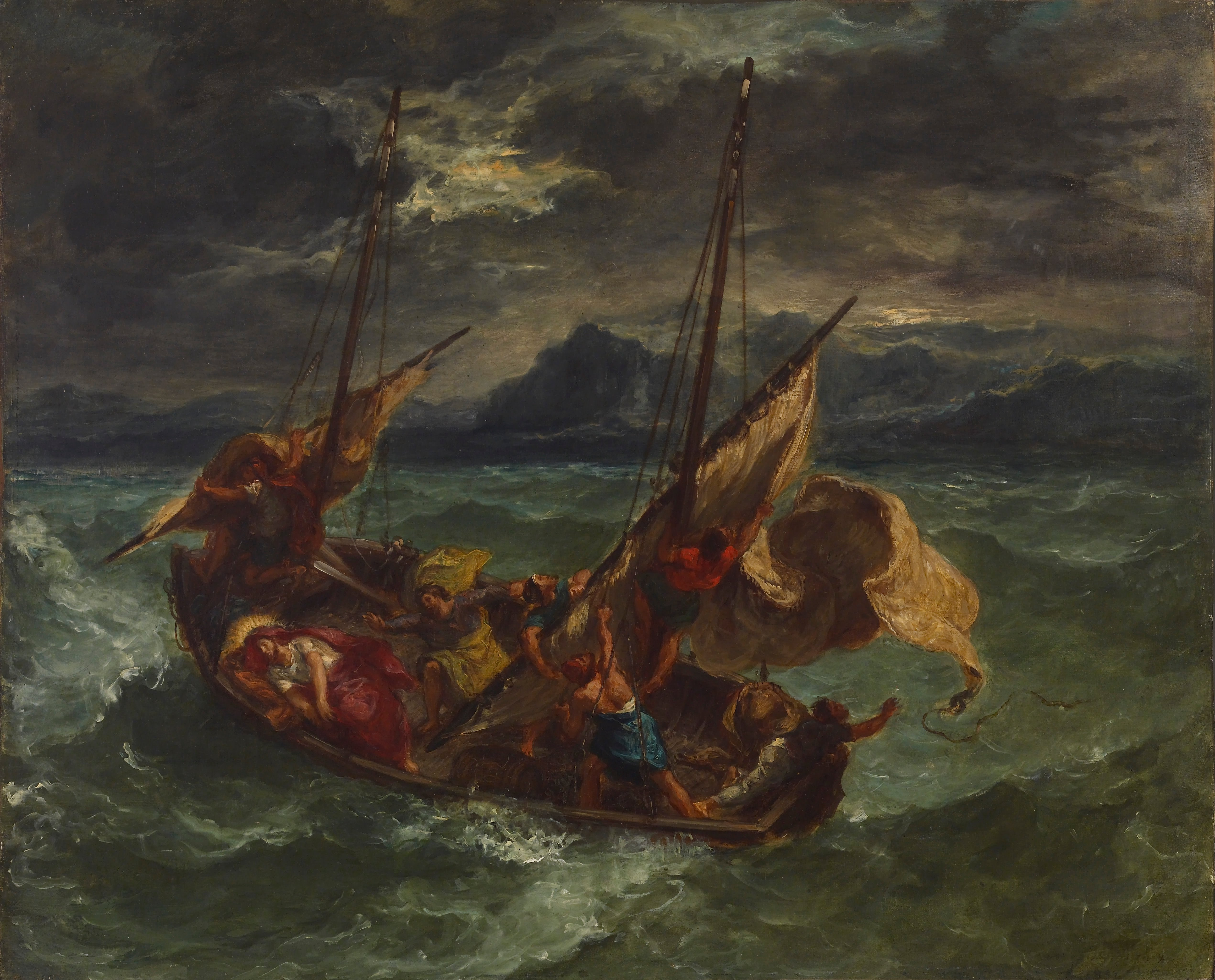Today’s first reading is a bit frightening. It begins with consolation, but quickly turns to rebuke: “You alone have I favored, more than all the families of the earth; therefore I will punish you for all your crimes” (Amos 3:2). God expects more of those to whom He gives more, and the Israelites have been given far more than any other nation. God goes on to point out how obvious He has been making His messages, compelling the prophets to speak His warnings, but because the Israelites have ignored them, the Lord will not spare them any longer: “So now I will deal with you in my own way, O Israel! and since I will deal thus with you, prepare to meet your God, O Israel” (Amos 4:12).
When Scripture speaks of the Lord allowing evil, it is referring to God’s permissive will, permitting but not directly causing evil in order to bring about good. Evil is directly caused by sinful man or by demons, not God. The Lord is saying that He has allowed the Israelites to experience disasters, and that He intends to continue to allow them to undergo trial. They have to prepare to “meet their maker,” as He is going to directly intervene.
Knowing that we have no place to stand before God, we should tremble at these words of rebuke. He is telling us to turn to Him now, while we are still being warned, in sorrow and contrition. As He allows the evil, He also brings the good.
The Gospel gives us a model of this turning to God. Jesus is asleep, allowing His disciples to experience a brutal storm at sea. About to drown, the disciples cry out, “Lord, save us! We are perishing!” (Matt. 8:25). Unlike the Israelites, who receive the Word and ignore it, the disciples have Jesus nearby and decide to wake Him up. Of course, He is aware of everything that is happening. He is asleep, but He is not absent. He is waiting for the disciples to ask for help. He wants them to be prepared to meet their God.
So too for us. God allows calamity to befall us. We cannot say that evil catches Him by surprise, or that it is not included in His plan for creation. Though He does not directly will evil, He always knew that creation would go through Original Sin to the Cross to the Resurrection. But we must turn to the Cross to be saved; we cannot simply look at it and then do what we like. Jesus is always with us, but we must be prepared to meet Him when He decides to reveal Himself to us.
La primera lectura de hoy es aterradora. Comienza con consuelo, pero rápidamente se convierte en reprensión: “Sólo a ustedes los elegí entre todos los pueblos de la tierra, por eso los castigaré con mayor rigor por todos sus crímenes” (Amós 3,2). Dios espera más de aquellos a quienes les da más, y a los israelitas se les ha dado mucho más que a cualquier otra nación. Dios continúa señalando cuán obvios ha estado transmitiendo Sus mensajes, obligando a los profetas a pronunciar Sus advertencias, pero debido a que los israelitas las han ignorado, el Señor no los perdonará más: “Por eso te voy a tratar así, Israel, y porque así te voy a tratar, prepárate, Israel, a comparecer ante tu Dios” (Amós 4,12).
Cuando las Escrituras hablan de que el Señor permite el mal, se refieren a la voluntad permisiva de Dios, que permite pero no causa directamente el mal para producir el bien. El mal es causado directamente por el hombre pecador o por los demonios, no por Dios. El Señor está diciendo que ha permitido que los israelitas experimenten desastres y que tiene la intención de continuar permitiéndoles pasar por pruebas. Tienen que prepararse para “comparecer ante tu Dios”, ya que Él va a intervenir directamente.
Sabiendo que no ocupamos ningún puesto de poder ante Dios, debemos temblar ante estas palabras de reprensión. Él nos está diciendo que volvamos a Él ahora, mientras todavía nos están advirtiendo, con tristeza y contrición. Así como permite el mal, Dios también trae el bien.
El Evangelio nos da un modelo de volverse a Dios. Jesús está dormido, permitiendo que sus discípulos experimenten una tormenta fuerte en el mar. A punto de ahogarse, los discípulos gritan: “Señor, ¡sálvanos, que perecemos! (Mateo 8,25). A diferencia de los israelitas, que reciben la Palabra y la ignoran, los discípulos tienen a Jesús de cerca y deciden despertarlo. Por supuesto, Él está al tanto de todo lo que está sucediendo. Está dormido, pero no está ausente. Está esperando que los discípulos le pidan ayuda. Quiere que estén preparados para encontrarse con su Dios.
Es lo mismos para nosotros. Dios permite que nos sobrevengan calamidades. No podemos decir que el mal lo toma por sorpresa o que no está incluido en Su plan para la creación. Aunque Él no desea directamente el mal, siempre supo que la creación pasaría por el Pecado Original hasta la Cruz y la Resurrección. Pero debemos acudir a la Cruz para ser salvados; No podemos simplemente mirarla y luego hacer lo que nos da la gana. Jesús siempre está con nosotros, pero debemos estar preparados para encontrarnos con Él cuando decida revelarse a nosotros.
 David Dashiell is a freelance author and editor in Nashville, Tennessee. He has a master’s degree in theology from Franciscan University, and is the editor of the anthology Ever Ancient, Ever New: Why Younger Generations Are Embracing Traditional Catholicism.
David Dashiell is a freelance author and editor in Nashville, Tennessee. He has a master’s degree in theology from Franciscan University, and is the editor of the anthology Ever Ancient, Ever New: Why Younger Generations Are Embracing Traditional Catholicism.
Feature Image Credit: Delacroix, cathopic.com/public-domain/delacroix/939-christ-on-the-sea-of-galilee

